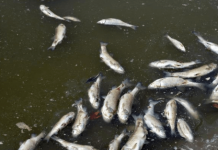World Rivers Day, established in 2005, is dedicated to reminding us of our invaluable aquatic landscapes. This commemoration reminds us to cherish and safeguard this priceless resource we have, it emphasizes the significance of rivers in sustaining life and urges individuals to take action for the conservation of these natural bodies. In this article, we’ll discuss the importance of World Rivers Day, and the role of rivers in our ecosystems, and offer practical ways to contribute to the preservation of these bodies.
This year’s World Rivers Day centres on the concept of the “Rights of Rivers.” This theme underscores the profound value of rivers, recognising them as the vital force of our planet, sustaining all forms of life. Rivers supply vital water resources for human, animal, and plant life and serve as natural channels for efficient transportation.
The Importance of World Rivers Day
World Rivers Day is a day set to remind us of our precious water bodies and aims to foster awareness about the crucial role that rivers play in our environment and society. It provides the international community with an opportunity to come together to talk about the vital role water plays in our lives– Consumption, Transportation, Recreation etc. It’s a day that reminds us of our shared responsibility of protecting our waters from harm.
Roles of rivers in our ecosystem
- Water Source – Rivers are the primary source of freshwater supply for drinking, agriculture, and industrial use. rivers play a crucial role in providing us with clean and usable water for our daily needs.
- Biodiversity – Rivers are the home to several species of sea creatures, they serve as the habitat to countless species of fish, birds, insects and mammals. All these creatures together create a connected and balanced environment where they can thrive and depend on each other for survival. So, rivers are not just water; they’re bustling ecosystems full of diverse life forms.
- Transportation and Trade – Throughout recorded history, rivers have been crucial for transportation and trade. They enable people and goods to move from one place to another, which in turn leads to economic growth and the exchange of different cultures. In simple terms, rivers have always been important for moving things around and for the development of economies and cultures.
- Recreation – Rivers offer enjoyable activities like fishing, swimming, boating, and more, offering valuable chances for relaxation and leisure.
- Natural Filtration Systems – Rivers work like natural cleaners, taking out dirt and harmful substances from the water. This is really important because it keeps the water safe and clean for both the animals that live in it and for us to use.
Practical Ways to Contribute to the Preservation of Rivers
- Taking steps to fix any leaks, opting for water-saving appliances, and being conscious of how much water you use are effective strategies to reduce the amount of water consumed in your home. This helps conserve this precious resource and can lead to a more sustainable and environmentally friendly household.
- Trees and plants that grow along the edges of rivers (riverbanks) play several important roles. They help hold the soil in place, which prevents it from being washed away by the water (erosion). This is crucial for maintaining a stable environment. Additionally, these trees and plants offer homes and shelter for various kinds of wildlife. One way to support this ecosystem is by getting involved in tree-planting programs or projects that aim to restore and enhance these natural areas. By participating in such initiatives, you’re actively contributing to the health and stability of river ecosystems.
- Spreading information and knowledge about why rivers are crucial for our environment and society. It also involves actively supporting and promoting rules and guidelines that focus on taking care of rivers in a way that ensures they can be used and enjoyed for a long time without causing harm to the environment or depleting their resources. This can involve things like controlling pollution, managing water usage, and preserving the natural habitats around rivers.
- Become part of efforts to clean up rivers in your local area. It could involve participating in organized events where community members come together to remove trash and harmful substances from the riverbanks and the areas nearby. This action helps in keeping the river environment clean and safe for both wildlife and people. It’s a practical way to contribute to the well-being of the ecosystem and ensure that the river remains a healthy and enjoyable place for everyone.
- Share information like this about World Rivers Day and the significance of rivers with your friends, family, and community members. Having knowledge about this topic is a potent catalyst for making positive differences.
World Rivers Day offers a special chance to engage with nature and acknowledge the crucial role rivers play in supporting life on our planet. Getting involved in activities that advocate for river conservation allows us to enhance the health of our ecosystems and communities. On this significant day, let’s unite to celebrate the life-giving essence of rivers and pledge to protect them for the well-being of generations to come.


















